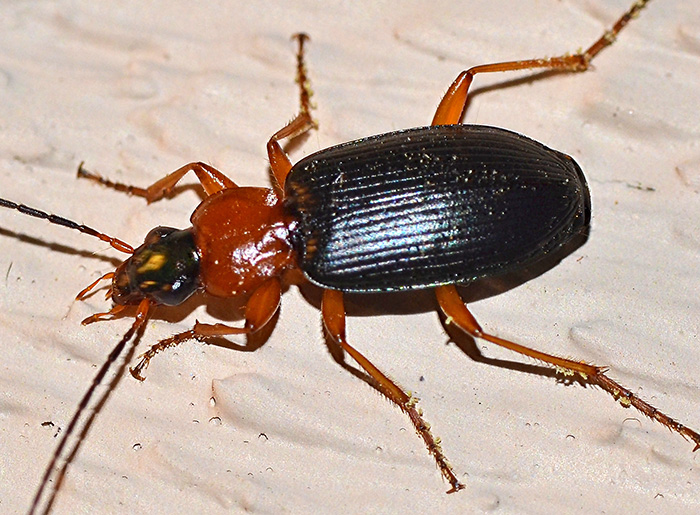 Agonum decorum. | The name of this ground beetle promises good manners and polite behavior: Agonum decorum. It can be found throughout North America where the genus is represented by 72 different species (>250 worldwide). It prefers habitats near water. bug guide (this photo): https://bugguide.net/node/view/1791949 |
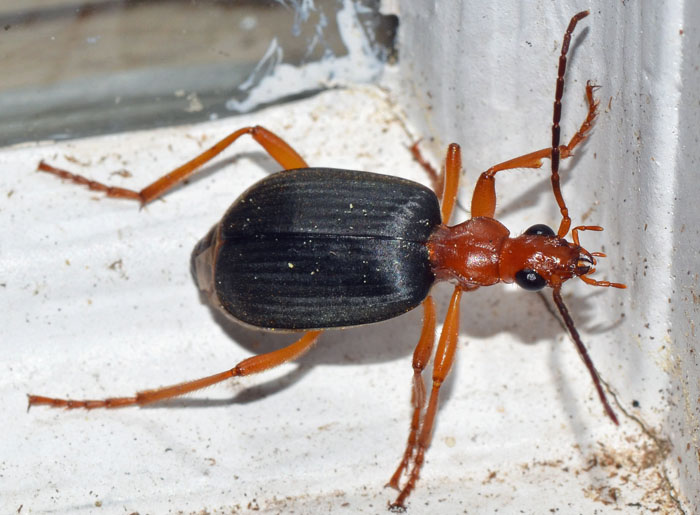 Brachinus sp. (Bombardier Beetle). | Bombardier beetles have developed a chemical defense mechanism against predators. They can eject a foul-smelling, toxic gas from their abdomen. The gas is composed of hydrogen peroxide, hydroquinone, and catalytic enzymes. The ejection creates a loud popping sound. The larvae of the bombardier beetle are parasitoids of aquatic beetle pupae and scavenge body of host after its death
bug guide (this photo): http://bugguide.net/node/view/1058560 wikipedia: http://en.wikipedia.org/wiki/Bombardier_beetle |
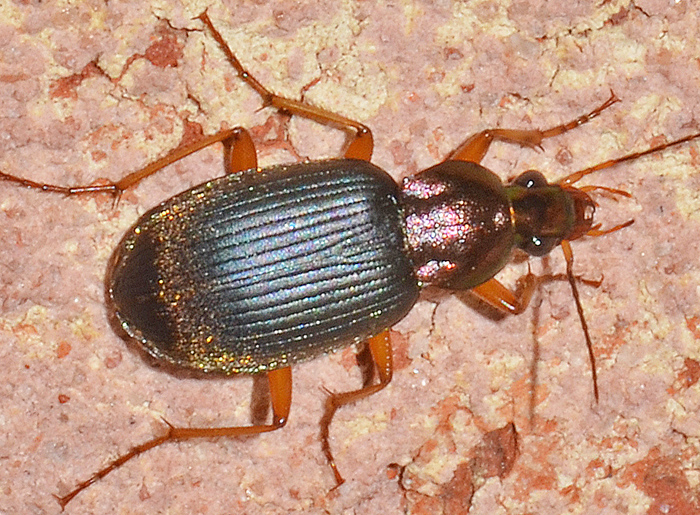 Chlaenius tricolor. | The typical habitats of this pretty beetle are moist or semiaquatic areas. Vivid Metallic Ground Beetles are medium-sized to large and often have vivid metallic coloration. There are over 50 Chlaenius species in the US. Some of these species lay eggs in mud cells placed underneath leaves or twigs. bug guide (this photo): http://bugguide.net/node/view/1204790 |
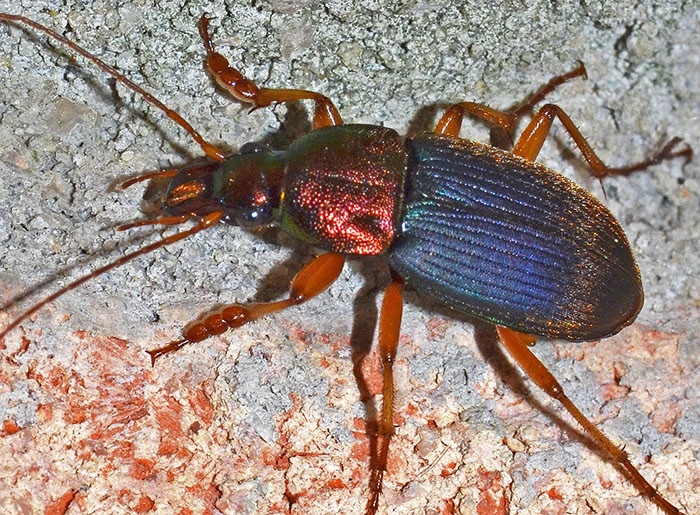 Chlaenius emarginatus. | To me this specimen looks very similar to Chlaenius tricolor with the main difference being the little nodules at the front legs. Bugguide, however, states: "Distinguished by large body size and long mandibles compared to other similar-looking" species. As of September 2018, bugguide had no photo of this species from Georgia and Alabama and my photo is the first for Florida. bug guide (this photo): https://bugguide.net/node/view/1516694 |
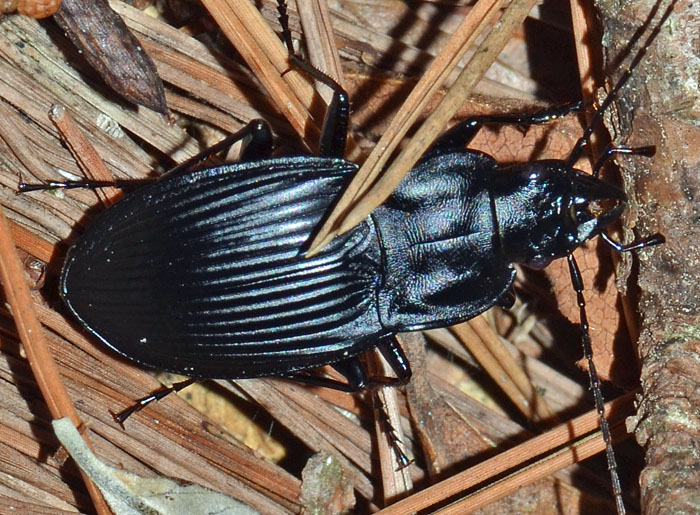 Dicaelus sp.. | A Notched-mouth Ground Beetle: Dicaelus subgenus Paradicaelus. There are seven species (arranged into three groups), which all can be found in the US. These beetles apparently feed on snails. bug guide (this photo): http://bugguide.net/node/view/945514 |
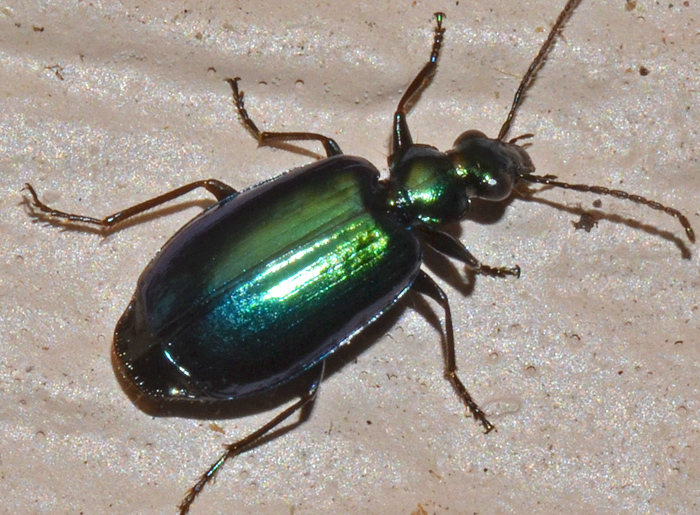 Lebia viridis. | This Colorful Foliage Ground Beetle is Lebia viridis. The species is wide spread, common, and shiny. The beetles are predatory on small insects.
bug guide (this photo): http://bugguide.net/node/view/1216501 |
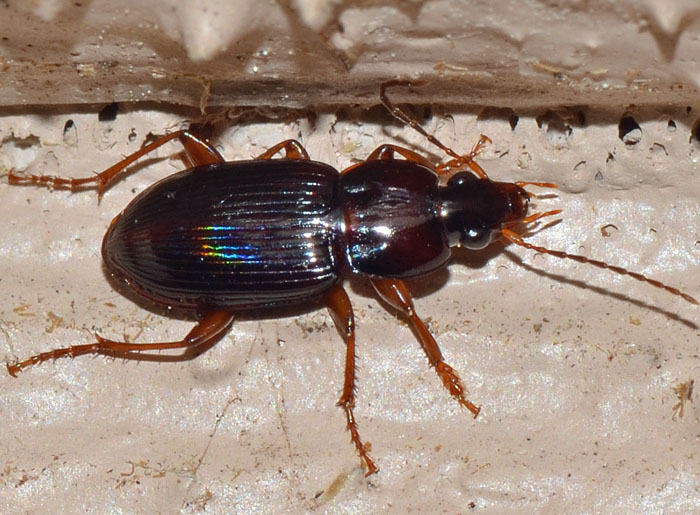 Loxandrus sp.. | This ground beetle loves damp conditions such as the leaf litter in moist forests and areas that are subject to seasonal
flooding and have extensive standing water. Loxandrus comes to light sources and has characteristic bulging eyes. For North America, the genus includes 44 species and many more worldwide. bug guide (this photo): http://bugguide.net/node/view/1053753 |
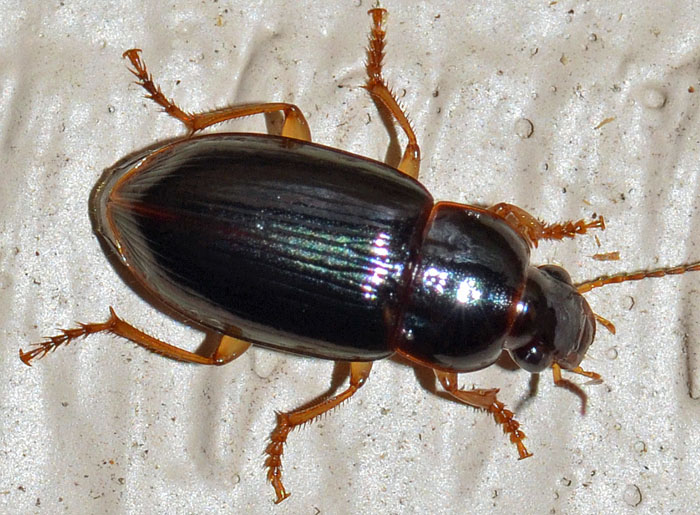 Notiobia terminata ♂. | Notiobia terminata has seven sister species in North America. Adults are mostly nocturnal and may come to lights. They prefer open places such as meadows, abandoned fields, orchards, sand and gravel pits. bug guide (this photo): https://bugguide.net/node/view/998151 |
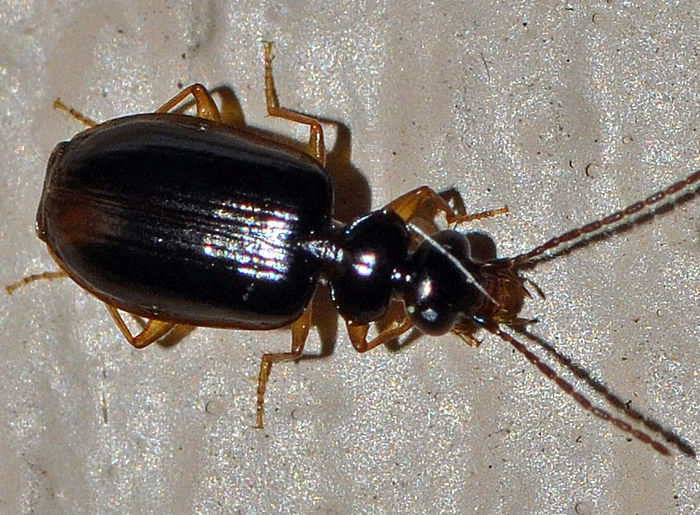 Pentagonica flavipes. | This species seems to live in the Southeastern states and the Caribbean. It was also introduced accidentally to the Galapagos Islands. The second link states: "Bell (1985) remarked that what we call Pentagonica flavipes may actually be 'a complex of sibling species, differing only in the form of the male genitalia.' These beetles are regular visitors to lights." bug guide (this photo): http://bugguide.net/node/view/1353319 American Insects: http://www.americaninsects.net/b/pentagonica-flavipes.html |
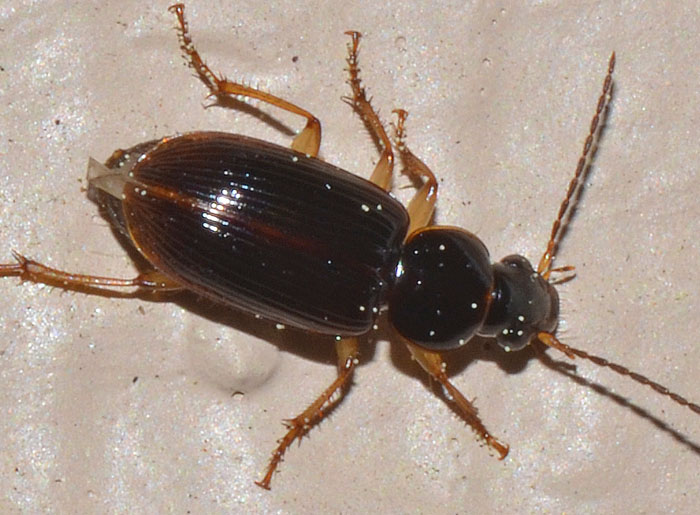 Stenolophus ochropezus (Seedcorn Beetle). | The US is home to 32 Stenolophus species. This specimen was clearly attracted to our outdoor lights. bug guide (this photo): http://bugguide.net/node/view/1200590 |
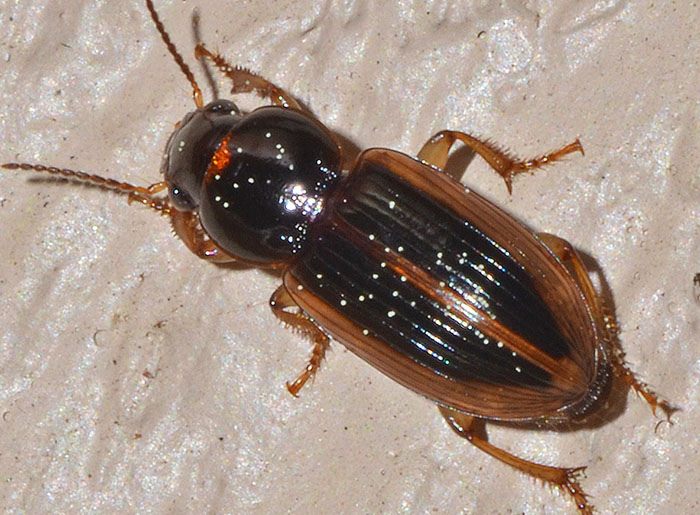 Stenolophus subgenus Agonoderus. | Seven species that can be found near grassy areas, fields, and along eutrophic ponds.
bug guide (this photo): https://bugguide.net/node/view/1200602 |
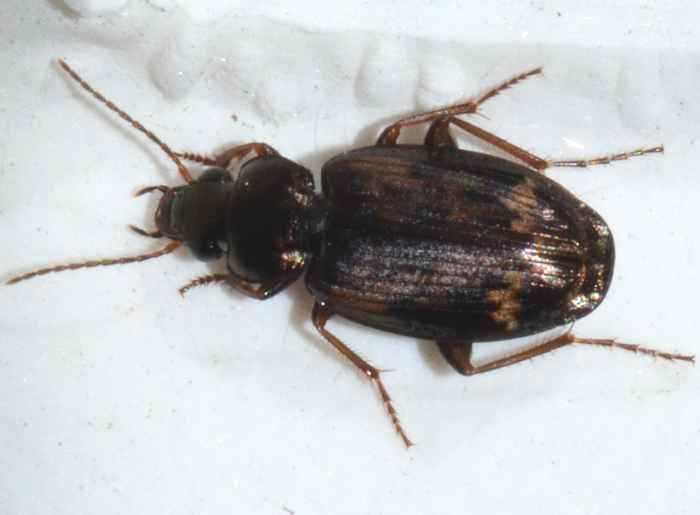 Tetragonoderus intersectus. | This ground beetle is Tetragonoderus intersectus. It can be found in the Southeast and Texas and seems to prefer sandy locations such as river banks. The six local species in this genus hunt at night and are attracted by lights. bug guide (this photo): http://bugguide.net/node/view/656431 |
